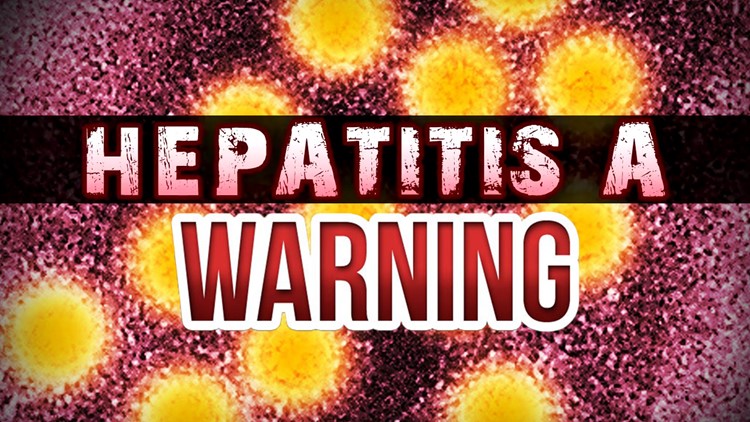UPDATE 7/26/2019 – Statement from Greg Madison, McDonald’s Owner/Operator: “We were informed by the Arkansas Department of Health that one of our former employees became ill with Hep A, however, the transmission risk to guests and employees who have visited our restaurant is low. We are fully cooperating with local officials to ensure the health and safety of all our employees and guests. We are committed to providing a clean and safe environment for all who visit our restaurant and have taken the proactive steps to completely sanitize our restaurant.”
——————————–
(AR DEPARTMENT OF HEALTH NEWS RELEASE) – Arkansas continues tohave a hepatitis A (hep A) outbreak. The Arkansas Department of Health (ADH) iswarning of a possible hep A exposure after an employee of the McDonald’s inTrumann tested positive for the virus.
Anyone who ate at the McDonald’s at 500 Industrial Park Dr., in Trumann,Ark. from July 9-16, 2019 should seek vaccination immediately if theyhave never been vaccinated against hep A or are unsure of their vaccinationstatus. There are no specific treatments once a person gets hep A. Illness canbe prevented even after exposure by getting the vaccine or medicine calledimmune globulin, which contains antibodies to hep A. These work best to preventillness if given within two weeks of exposure to the virus. Hep A vaccinationcan still prevent the virus after exposure.
The ADH will host a vaccine clinic on Friday, July 26, 2019. Vaccines will be available from 7:30 a.m. to 6 p.m. in the Poinsett County Health Unit at 1204 West Main in Trumann. The vaccine will be provided to the public at no cost. People should bring their insurance card and driver’s license if they have one. Those who are unable to attend the clinic because they are in another county may be able to visit a Local Health Unit in their county. Those visiting Local Health Units in other counties should call ahead to ensure vaccine is available. The Local Health Unit listing can be found at https://www.healthy.arkansas.gov/health-units.
Anyone experiencing symptoms should seek careimmediately. Typical symptoms of hep A include fever, fatigue, loss ofappetite, nausea, vomiting, abdominal pain, dark urine, clay-colored bowelmovements, joint pain, or jaundice (yellowing of the skin or eyes). It canrange in severity from a mild illness lasting a few weeks to a severe illnesslasting several months.
Risk of getting hep A in a food service setting islow. Restaurants must follow ADH protocols for handwashing and glove use, andemployees are not to return to work until they are no longer sick. Hep A isbeing spread in this outbreak primarily through close contacts in thecommunity, not through eating at restaurants.
Since February 2018, 382 cases of hep A have beenreported as part of an outbreak in Arkansas, including three deaths. Greene andCraighead counties have had the most cases, and there have also been cases inArkansas, Clay, Cleburne, Conway, Crittenden, Cross, Faulkner, Fulton,Independence, Jackson, Jefferson, Lawrence, Lee, Lincoln, Logan, Lonoke,Mississippi, Monroe, Phillips, Poinsett, Prairie, Pulaski, Randolph, Sharp, St.Francis, Washington, and White counties. Several other states are experiencingoutbreaks as well.
Those at high risk of getting hep A are:
- Anyone who has had close contact with someone who has hep A
- People who use drugs, whether injected or not
- People experiencing homelessness, transient, or unstable housing
- People who have been recently incarcerated
The hep A vaccine is safe and effective. Hep A is acontagious liver disease that results from infection with the hep A virus,which is a different virus from the viruses that cause hep B or hep C. It isusually spread when a person ingests tiny amounts of fecal matter from contactwith objects, food or drinks contaminated by the feces (stool) of an infectedperson.
A person can transmit the virus to others up to twoweeks before and one week after symptoms appear. If infected, most people willdevelop symptoms three to four weeks after exposure; however, the virus cancause illness anytime from two to seven weeks after exposure. Many people,especially children, may have no symptoms. Almost all people who get hep Arecover completely and do not have any lasting liver damage, although they mayfeel sick for months.
Older people typically have more severe symptoms.Other risk factors for having more severe symptoms of hep A include havingother infections or chronic diseases like hep B or hep C, HIV/AIDS, ordiabetes. Up to one in three adults are typically hospitalized. Death due tohep A is rare, but is more likely in patients with other liver diseases (likehep B or hep C).
For more information about hep A and updated information about the outbreak in Arkansas, please visit www.healthy.arkansas.gov.



